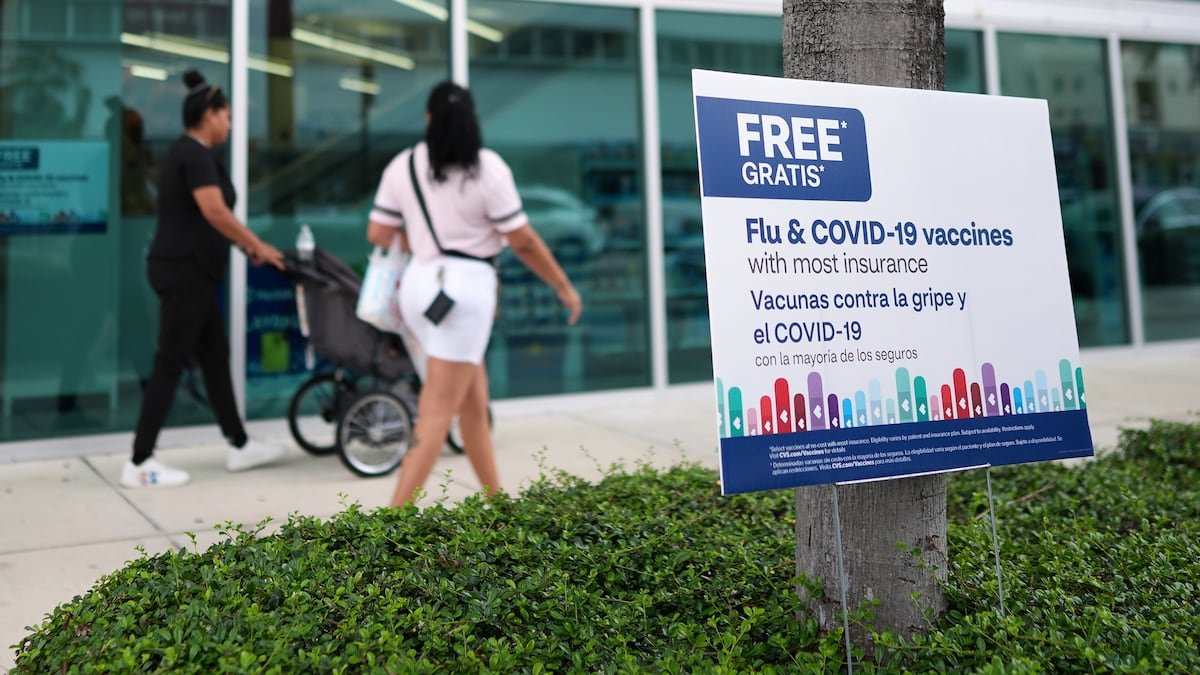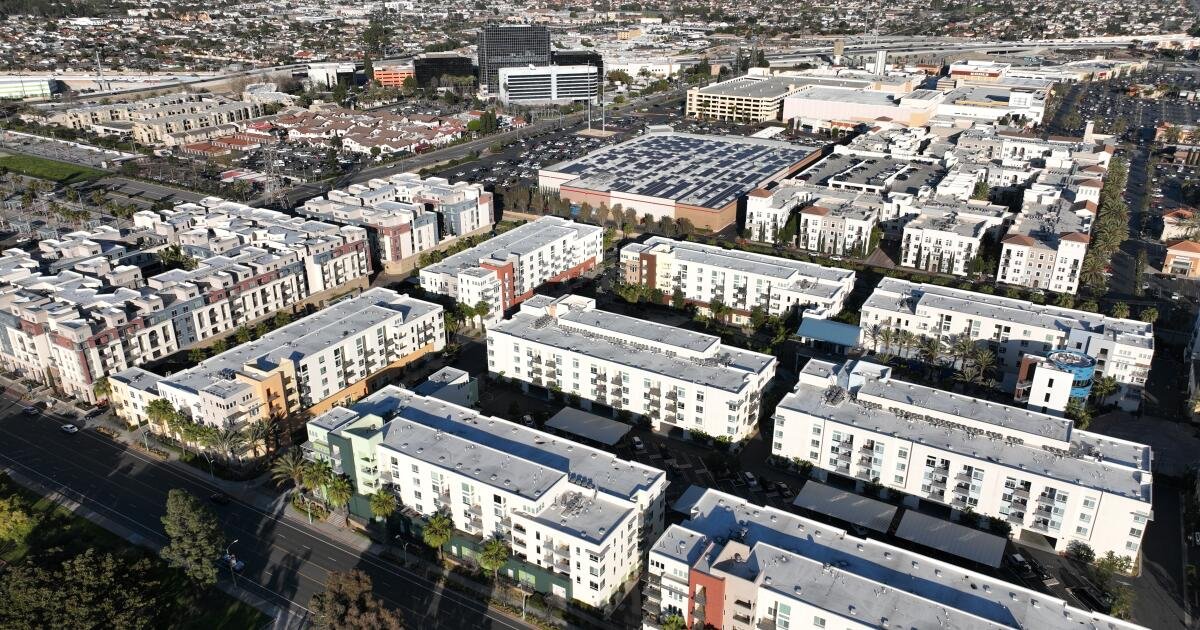Top Stories
Trump calls on EU to impose 100% tariff on China and India to pressure Putin

US President Donald Trump has called on the European Union to hit China and India with tariffs of up to 100% as part of his efforts to force Russian President Vladimir Putin to end the war in Ukraine, a source familiar with the discussions has told the BBC.
He made the demand, first reported by the Financial Times, during a meeting between US and EU officials on Tuesday discussing options to increase economic pressure on Russia.
The proposal comes as Trump struggles to broker a peace deal between Moscow and Kyiv and as Russia’s strikes on Ukraine intensify.
Separately, Trump told reporters on Tuesday that he plans to talk to Putin on a call this week or early next week.
Ukraine’s main government building in Kyiv was struck by a Russian missile over the weekend – in an attack that was seen as both symbolic and a major increase of aggression by the Kremlin.
Over the weekend, attacks across the country marked the heaviest aerial bombardment on Ukraine since the war began. Ukraine said Russian forces used at least 810 drones and 13 missiles.
On Tuesday, more than 20 civilians were killed by a Russian glide bomb in the eastern Donbas region, as they queued to collect their pensions.
Speaking to reporters after the weekend bombardment, Trump said he was “not happy with the whole situation” and threatened harsher sanctions on the Kremlin.
The US president has previously threatened harsher measures against Russia, but not taken any action despite Putin ignoring his deadlines and threats of sanctions.
A highly anticipated summit between the leaders in Alaska last month ended without a peace deal.
Trump’s request to the European Union follows remarks from US Treasury Secretary Scott Bessent, who said Washington was prepared to escalate economic pressure but needed stronger European backing.
Trump also said on Tuesday that the US and India were “continuing negotiations to address the Trade Barriers” between the two countries.
He plans to speak to Indian Prime Minister Narendra Modi in the coming weeks and expects a “successful conclusion” to their trade talks, he wrote on his Truth Social platform.
In response to the post, Modi echoed Trump’s optimism that the talks would be successful and said the two countries were “close friends and natural partners.”
“Our teams are working to conclude these discussions at the earliest. I am also looking forward to speaking with President Trump,” he added.
Trump’s comments have been seen by some as the latest sign of a reconciliation between Washington and Delhi, after a collapse in their trade negotiations.
Last week, Trump emphasised the “special relationship” between India and the US, saying “there’s nothing to worry about. We just have moments on occasion”.
China and India are major buyers of Russian oil, which helps to keep the Russian economy afloat.
Last month, the US imposed a 50% tariff on goods from India, which included a 25% penalty for its transactions with Russia.
Although the EU has said it would end its dependency on Russian energy, around 19% of its natural gas imports still come from Russia.
If the EU does impose the tariffs on China and India it would mark a change to its approach of attempting to isolate Russia with sanctions rather than trade levies.
Top Stories
Taylor Swift Didn’t OK Blake Lively-Justin Baldoni Lawsuit Deposition

UPDATE (Sept. 12): In an order Friday evening, Judge Lewis J. Liman denied Justin Baldoni’s request to depose Taylor Swift after the current discovery deadline, stating that Baldoni’s team “failed to demonstrate appropriate diligence” after only recently reaching out to Swift’s camp about scheduling the deposition. This means Baldoni has lost his shot at deposing Swift, foreclosing what could have been an intense court battle over whether the pop star would be forced to sit for questioning.
PREVIOUSLY: Taylor Swift‘s lawyers say the pop superstar has not agreed to sit for a deposition in Blake Lively and Justin Baldoni’s bitter legal feud over the movie It Ends With Us, refuting claims from Baldoni’s camp that the star had consented to the sit-down.
Baldoni’s attorneys wrote in a request for a discovery schedule extension on Thursday (Sept. 11) that Swift “has agreed to appear for deposition” but cannot do so earlier than Oct. 20 because of “preexisting professional obligations” — presumably referring to the rollout of her highly anticipated twelfth album, The Life of a Showgirl, which arrives on Oct. 3.
But Swift’s longtime attorney Douglas Baldridge says in a Friday (Sept. 12) court filing that this is false.
“My client did not agree to a deposition, but if she is forced into a deposition, we advised (after first hearing about the deposition just three days ago) that her schedule would accommodate the time required during the week of October 20 if the parties were able to work out their disputes,” wrote Baldridge.
Baldoni has been saying for months that Swift’s friendship with Lively makes her a key witness in the lawsuit, in which Lively alleges Baldoni sexually harassed her on the set of It Ends With Us and then orchestrated a retaliatory smear campaign after she complained.
In June, the federal judge overseeing the legal battle granted Baldoni’s request to access Swift and Lively’s text messages as part of the document discovery process. Now, Baldoni wants to depose Swift.
The current discovery schedule has all depositions concluding by the end of September, in anticipation of a March 2026 trial date. But lawyers for Baldoni and his production company, Wayfarer Studios, asked for an extension on Thursday for the Swift deposition.
Swift’s reps have previously slammed Baldoni for “creating tabloid clickbait” by dragging the star into the case despite her minimal involvement in It Ends With Us. Baldridge reiterated this position in his letter to the court on Friday, writing, “Since the inception of this matter we have consistently maintained that my client has no material role in this action.”
Lively’s lawyers have similarly lambasted Baldoni for involving Swift in the litigation, writing in their own Friday court response that the strategy is designed “to generate a media spectacle.”
The Lively team is against extending the discovery cutoff to question Swift, saying it’s Baldoni’s own fault for waiting until this week to contact the singer’s counsel about scheduling her deposition.
“The Wayfarer defendants’ lack of diligence, and disrespect for Ms. Swift’s privacy and schedule, is astounding,” wrote Lively’s lawyer Michael Gottlieb. “Ms. Swift is someone whose calendar should be presumed to be packed with professional obligations for months in advance. At any point over the past six months, the Wayfarer defendants could have noticed a deposition, served a subpoena and negotiated an agreeable time and place for this deposition. But they did not.”
Judge Lewis J. Liman has not yet ruled on Baldoni’s discovery extension request.
The fiery legal battle between Lively and Baldoni has been in full force since last December, when the actress brought sexual harassment and retaliation claims against her It Ends With Us co-star and director.
Baldoni vehemently denied the allegations and countersued Lively and her inner circle for defamation, though Judge Liman later dismissed Baldoni’s counterclaims as legally invalid. Now, only Lively’s original allegations are headed toward trial this coming spring.
The Baldoni team has sought to involve Swift since the early days of the case, writing in court filings that Lively weaponized the “influential and wealthy celebrities” in her orbit to gain leverage over him while making It Ends With Us.
This story was updated on Sept. 12 at 2:27 p.m. ET to reflect that Swift has not agreed to a deposition.
Top Stories
Florida residents struggling to get COVID vaccines after federal changes – Tampa Bay Times

- Florida residents struggling to get COVID vaccines after federal changes Tampa Bay Times
- They want COVID shots to protect their health or family. They can’t get them NPR
- Va. Department of Health issues order to ease COVID-19 vaccine access, as federal guidance shifts WTOP
- As Covid surges in the US, Americans can’t get vaccinated: ‘terrified I might kill somebody’ The Guardian
- COVID vaccine chaos: Even pharmacists are confused, but here’s who can get one San Francisco Chronicle
Top Stories
California lawmakers pass SB 79, housing bill that brings dense housing to transit hubs

California lawmakers just paved the way for a whole lot more housing in the Golden State.
In the waning hours of the 2025 legislative session, the state Senate voted 21 to 8 to approve Senate Bill 79, a landmark housing bill that overrides local zoning laws to expand high-density housing near transit hubs. The controversial bill received a final concurrence vote from the Senate on Friday, a day after passing in the California assembly with a vote of 41 to 17.
The bill had already squeaked through the state Senate by a narrow margin earlier this year, but since it was amended in the following months, it required a second approval. It will head to Gov. Gavin Newsom’s desk in October.
One of the more ambitious state-imposed efforts to increase housing density in recent years, the bill was introduced in March by Sen. Scott Wiener (D-San Francisco), who stresses that the state needs to take immediate action to address California’s housing shortage. It opens the door for taller, denser housing near transit corridors such as bus stops and train stations: up to nine stories for buildings adjacent to certain transit stops, seven stories for buildings within a quarter-mile, and six stories for buildings within a half-mile.
Single-family neighborhoods within a half-mile of transit stops would be subject to the new zoning rules.
Height limits are based on tiers. Tier 1 zoning, which includes heavy rail lines such as the L.A. Metro B and D lines, allows for six- to nine-story buildings, depending on proximity to the transit hub. Tier 2 zoning — which includes light rail lines such as the A, C, E and K lines, as well as bus routes with dedicated lanes — allows for five- to eight-story buildings.
An amateur map released by a cartographer and fact-checked by YIMBY Action, a housing non-profit that helped push the bill through, gives an idea of the areas around L.A. that would be eligible for development under SB 79. Tier 1 zones include hubs along Wilshire Blvd., Vermont Ave., and Hollywood Blvd., as well as a handful of spots in Downtown L.A. and the San Fernando Valley.
Tier 2 zones are more spread out, dotting Exposition Blvd. along the E line, stretching toward Inglewood along the K line, and running from Long Beach into the San Gabriel Valley along the A line.
Assembly members debated the bill for around 40 minutes on Thursday evening and cheered after it was passed.
“Over the last five years, housing affordability and homelessness have consistently been among the top priorities in California. The smartest place to build new housing is within existing communities, near the state’s major transit investments that connect people to jobs, schools and essential services,” said Assemblymember Sharon Quirk-Silva (D-Orange County) in support of the bill.
Other assembly members, including Buffy Wicks (D-Oakland), Juan Carrillo (D-Palmdale) and Josh Hoover (R-Folsom) voiced their support.
Proponents say drastic measures are necessary given the state’s affordability crisis.
“SB 79 is what we’ve been working towards for a decade – new housing next to our most frequently used train stations. This bill has the potential to unlock hundreds of thousands of new multi-family homes,” said YIMBY Action California director Leora Tanjuatco Ross.
Critics claim the blanket mandate is an overreach, stripping local authorities of their ability to promote responsible growth.
Assemblymember Rick Zbur (D-West Hollywood) argued against the bill, claiming it will affect lower-priced neighborhoods more than wealthy ones since land prices are cheaper for housing developers.
The vote came a few weeks after the Los Angeles City Council came out against the bill, voting 8 to 5 on a resolution opposing it.
Councilmember Traci Park, who co-authored the resolution with Councilmember John Lee, called SB 79 a “one-size-fits-all mandate from Sacramento.” Lee called it “chaos.”
The resolution called for L.A. to be exempt from the upzoning since it already has a state-approved housing plan.
The bill has spurred multiple protests in Southern California communities, including Pacific Palisades and San Diego. Residents fear the zoning changes would alter single-family communities and force residents into competition with developers, who would be incentivized under the new rules to purchase properties near transit corridors.
However, support for SB 79 surged in recent days after the State Building and Construction Trades Council, a powerful labor group that represents union construction workers, agreed to reverse their opposition in exchange for amendments that add union hiring to certain projects.
In a statement after the deal was struck, the trades council president Chris Hannan said the amendments would provide good jobs and training to California’s skilled construction workforce.
Wiener, who has unsuccessfully tried to pass similar legislation twice before, said the deal boosted the bill’s chances.
-

 Business2 weeks ago
Business2 weeks agoThe Guardian view on Trump and the Fed: independence is no substitute for accountability | Editorial
-
Tools & Platforms1 month ago
Building Trust in Military AI Starts with Opening the Black Box – War on the Rocks
-

 Ethics & Policy2 months ago
Ethics & Policy2 months agoSDAIA Supports Saudi Arabia’s Leadership in Shaping Global AI Ethics, Policy, and Research – وكالة الأنباء السعودية
-

 Events & Conferences4 months ago
Events & Conferences4 months agoJourney to 1000 models: Scaling Instagram’s recommendation system
-

 Jobs & Careers2 months ago
Jobs & Careers2 months agoMumbai-based Perplexity Alternative Has 60k+ Users Without Funding
-

 Podcasts & Talks2 months ago
Podcasts & Talks2 months agoHappy 4th of July! 🎆 Made with Veo 3 in Gemini
-

 Education2 months ago
Education2 months agoVEX Robotics launches AI-powered classroom robotics system
-

 Education2 months ago
Education2 months agoMacron says UK and France have duty to tackle illegal migration ‘with humanity, solidarity and firmness’ – UK politics live | Politics
-

 Funding & Business2 months ago
Funding & Business2 months agoKayak and Expedia race to build AI travel agents that turn social posts into itineraries
-

 Podcasts & Talks2 months ago
Podcasts & Talks2 months agoOpenAI 🤝 @teamganassi


